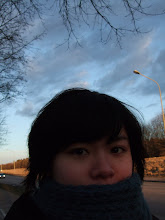Having the right and freedom to speak doesn't guarantee the result of being heard. When the assumptions behind the current discursive space are dominated/pre-structured/mandated by the mainstream voices, how to keep the uniqueness of the marginalized and at the same time make sure they are being heard? The conversation between Henry Jenkins and Dayna Cunningham rotates around a similar but more specific question: Can African-Americans find their voice in cyberspace?
The conversation is divided into four parts; Jenkins and Cunningham respectively give out two sections of their thinking, inquiries, and ideas about the question. It is a long, rich, and very interesting conversation in which many sparkles are popping out here and there. I especially like the part where Henry Jenkins discussing the two models for the black voice to reach its audience. One is the "hush harbor" model, where "blacks could communicate with blacks largely outside of the vision of white America" (part two). The first model is basically aiming on creating a "black public sphere" where a particular kind of critical culture that belongs to blacks can be generated, inspected, articulated and circulated.
The second model is more open and fluid. It follows the "very nature of the modern media landscape"; messages and ideas are moving across communities, networks, and social groups. Thanks to the broadband, online social media, and other technology, more and more open spaces for different people to express, or extend their mind. However, as Manuel Castells points out, "while the network society is organised on a global scale, not all territories, or people, are connected in this network society" ("Why Networks Matter"). People's life, ways of thinking, and perspectives are still being influenced, shaped, and redefined, but they are not necessary participants--for one thing, they might not even aware of the moving of streams; for another, they might have a hard time finding a spot in the chaos. The spaces are seemingly open to all kinds of users, but in fact some unintended restraints might be woven into the structures upon which those spaces are built. Therefore, another question arises. In order to reach the "mixed audience," should the black voice, or any other subaltern voices, play along or break down the rules/codes of the majority?
No answers are offered here or in the discussion between Jenkins and Cunningham, but the conversation has been opened up.

No comments:
Post a Comment